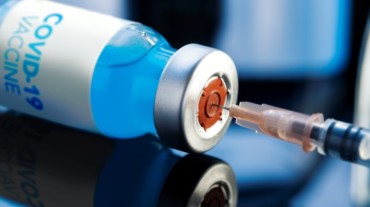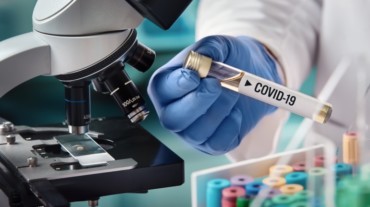
The vaccine against coronavirus disease (Covid-19) is likely to be anywhere between 50 to 100% effective, according to director general of the Indian Council of Medical Research (ICMR).
“All the vaccines for respiratory viruses are not 100% effective. The World Health Organisation (WHO) says that there are three things key for a vaccine: safety (how safe it is for human use), immunogenicity (whether it is able to provoke body’s immune response) and its efficacy (how effective it is against the virus),” said director general, ICMR, Dr Balram Bhargava.
“And WHO says even if we get 50% efficacy that is more than acceptable. So for respiratory viruses we will never get a vaccine with 100% efficacy. We are obviously aiming at 100% efficacy but we may get anywhere between 50 to 100%,” he added.
Central Drugs and Standard Control Organisation (CDSCO), has also issued a draft guidance note on vaccine development in the country, with special focus on Covid-19 vaccine, especially safety profile.
Initiation of phase III trials should be preceded by adequate characterization of safety and immunogenicity for each vaccine candidate, dose level, and age group to be evaluated to support general safety, potential for vaccine efficacy, and low risk of vaccine associated respiratory distress, according to the note.
“…subjects with history or laboratory evidence of prior COVID-19 infection should not be excluded from COVID-19 vaccine trial. However, subjects with acute COVID-19 or other acute infectious illness should be excluded from such trials. Consideration should be given for inclusion of diverse populations in all phases of vaccine clinical development to ensure that vaccines are safe and effective for everyone in the indicated populations. Evaluation of vaccine safety and efficacy in phase III clinical trial in adults should include adequate representation of elderly individuals and individuals with comorbidities,” the note reads.

Normally, permission to carry out clinical trials is given in stages, considering the data emerging from earlier phases. However, on case by case basis, clinical development programs may be allowed to proceed through a seamless approach to expedite the development of a vaccine for which, there is an unmet medical need in the country, like in case of Covid-19.
“In case, a vaccine has been developed and has undergone clinical trial development outside India and marketing authorization application for the same have been submitted to CDSCO, the clinical data generated will be considered for evaluation of overall safety and effectiveness of the vaccine. However, additional clinical trial may be required in local population to confirm the safety and effectiveness in Indian population. The extent of local clinical trial requirements will be decided on case by case basis considering the urgency, unmet need of the vaccine in the country,” it said.
Also, watch:
Select Topics of your interest and let us customize your feed.
PERSONALISE NOWRajesh Bhushan, secretary, Union health ministry, however, said, “This is just a draft guidance note that has been put in public domain as part of the transparency policy of the government to invite stakeholders comments. It is not a final
India’s two indigenous vaccine candidates against coronavirus disease (Covid-19) have completed phase 1 human trials, and recruitment of subjects for the next level, phase 2, has also completed.
“Among the three Covid-19 vaccine candidates- Zydus Cadila’s has completed phase 1 human trials, and phase 2 recruitments have been completed. For this three doses are to be given 28 days apart. For Bharat Biotech’s vaccine candidate also the phase 1 trial is done, and so is recruitment of trial participants for phase 2. For this trial two doses are to be given. Results are being analysed,” informed Dr Bhargava, during one of the press briefings on Covid-19.
Phase 2,3 human trials for Oxford-AstraZeneca vaccine candidate conducted by the Serum Institute of India is also currently underway in the country.

Another Covid-19 vaccine candidate, for which talks are on for trials in India is the one developed by Russia called Sputnik V.
“Indian government was approached by the Russian government through appropriate channels for assistance and collaboration in terms of establishing a manufacturing base through our companies here for their vaccine; basically connecting the Russian teams with Indian manufacturing companies that in normal course also happens but that connect was facilitated and they are in talks with various companies,” said Dr VK Paul, member (health), Niti Aayog, who chairs the Covid-19 empowered group for vaccines in India.
“Another dimension was to look into regulatory pathways for phase 3 trials or any other clinical trials to be facilitated here. Indian government has conveyed to them to apply with appropriate documents; they have to identify the entity that will approach the regulator on their behalf. We hope they will soon approach the central regulator systematically while adhering to the norms and regulations of India. It is a work in progress,” Dr Paul added.